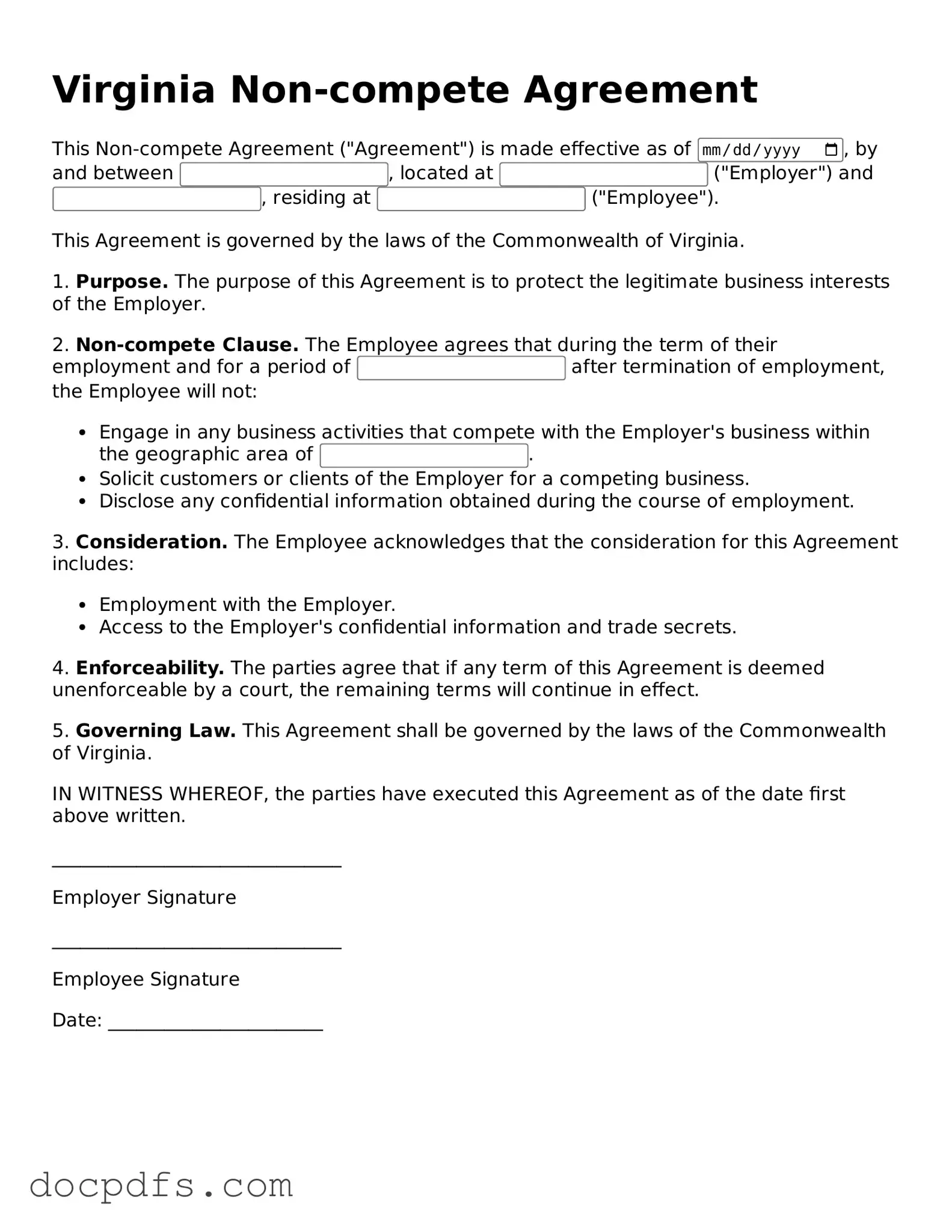What is a non-compete agreement in Virginia?
A non-compete agreement is a contract between an employer and an employee that restricts the employee from engaging in business activities that compete with the employer after the employment relationship ends. In Virginia, these agreements must be reasonable in scope and duration to be enforceable.
Are non-compete agreements enforceable in Virginia?
Yes, non-compete agreements can be enforceable in Virginia, but several factors determine their validity. Courts will look at the reasonableness of the agreement in terms of duration, geographic area, and the nature of the restricted activities. If deemed overly broad or unfair, a court may refuse to enforce the agreement.
What factors do Virginia courts consider when evaluating a non-compete agreement?
Virginia courts typically consider the following factors:
-
The duration of the restriction.
-
The geographic scope of the restriction.
-
The specific activities being restricted.
-
The legitimate business interests of the employer.
Each case is unique, and courts will assess these factors in the context of the specific circumstances surrounding the agreement.
How long can a non-compete agreement last in Virginia?
While there is no strict time limit, a duration of six months to two years is generally considered reasonable. However, the appropriateness of the duration depends on the nature of the industry and the specific circumstances of the employment. Courts may strike down agreements that impose excessively long restrictions.
What is considered a reasonable geographic scope for a non-compete agreement?
The geographic scope should be limited to the area where the employer conducts business or where the employee had significant influence. For example, if an employee worked in a specific city or region, restricting them from competing in that same area may be deemed reasonable. However, a nationwide ban for a local employee would likely be considered excessive.
Can an employee negotiate a non-compete agreement?
Yes, employees can negotiate the terms of a non-compete agreement before signing. It’s important for employees to understand the implications of such agreements and to seek modifications that may make the terms more favorable. Open communication with the employer can lead to a mutually agreeable arrangement.
What happens if I violate a non-compete agreement?
If an employee violates a non-compete agreement, the employer may pursue legal action. This could result in an injunction preventing the employee from continuing the competing activities or even monetary damages. However, the enforceability of the agreement will ultimately depend on its reasonableness and the specific circumstances of the case.
Can a non-compete agreement be enforced after employment ends?
Yes, non-compete agreements are designed to take effect after the employment relationship has ended. The employee is expected to adhere to the terms of the agreement for the specified duration, even if they are no longer employed by the company.
Are there any exceptions to non-compete agreements in Virginia?
Yes, Virginia law includes certain exceptions. For instance, non-compete agreements cannot restrict an employee from working in their chosen profession if they are terminated without cause. Additionally, non-compete agreements cannot be enforced against low-wage workers, as per Virginia’s new legislation aimed at protecting employees.
What should I do if I am presented with a non-compete agreement?
If you are presented with a non-compete agreement, it is advisable to read it thoroughly and consider consulting with a legal professional. Understanding your rights and obligations is crucial. A lawyer can help you assess the agreement's enforceability and negotiate terms that protect your interests.

